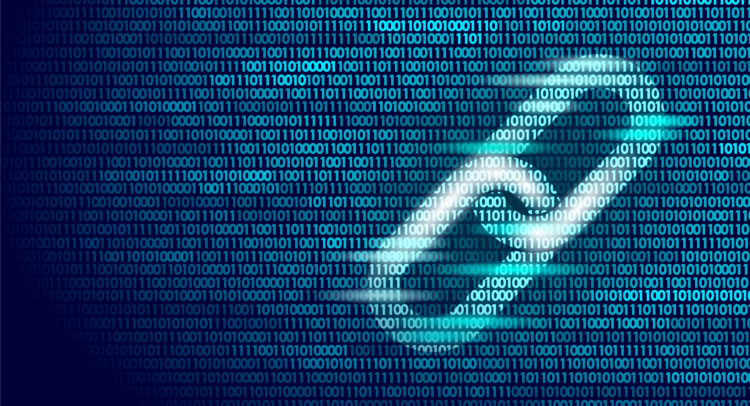[ad_1]
Trust is a fundamental component of blockchain protocols and their ability to ensure highly secure and privacy-enabled setups that can reduce the presence of intermediaries in transactions. By building a trusted environment that assures security and transactional integrity, parties can transact in a peer-to-peer format and dependably receive accurate output. Yet, introducing trusted environments depends on setting up a protocol that doesn’t invite interference by nefarious parties.
To enhance protocol security, decentralization, and scalability, satellite developer and operator Cryptosat teamed up with incentive platform and hackathon organizer DoraHacks to experiment with trusted setups in space. Performed in conjunction with Nanoracks Europe, which has been offering commercial space services since 2009, the first-of-its-kind experiment aboard the International Space Station (ISS) demonstrated that trusted setups could be generated in space. In this particular case, space’s remoteness assures greater security and decentralization relative to comparable earth-based services.
In this case, the experiment produced a Common Reference String (CSR), powering a Zero-Knowledge proof responsible for managing user privacy and protecting the Dora Grant DAO’s (decentralized autonomous organization) voting system. The general idea behind a Zero-Knowledge proof is that one party doesn’t need to share private information with a second party to prove that a specific output is valid. Instead, this proof is provided cryptographically.
The trusted setup is the phase that generates the Common Reference String. A trusted setup is required to arrive at the validation stage, whereby at least two parties set the standards the Zero-Knowledge proof depends upon to function. Without the trusted setup, a malicious user could upload their own CSR to a protocol, thereby invalidating a system’s trust.
In addition to securing the Dora Grant DAO’s voting mechanism to thwart any schemes between voting parties and enable user privacy, the experiment also demonstrated how Cryptosat’s low-earth-orbit nano-satellites could offer trusted setups to power other protocols and networks.
Proving the Prowess of Space-Based Computation
Founded in 2020, Cryptosat endeavors to bring tamper-proof computation services to multiple markets, including blockchains, applications, protocols, and services. Cryptosat, which raised $3 million in its seed round in 2022, including from DoraHacks, provides a secure cryptographic computation environment in low-earth orbit via satellites the size of a coffee mug. This solution is made feasible by the falling costs of launching and monitoring a satellite amid the emergence of private space contractors like SpaceX.
The physical isolation afforded by this approach ensures that the company’s orbiting hardware is tamper-proof and protected against intrusions by both state and non-state actors. Unlike earth-based hardware, which depends on high-security measures and internet connectivity along with a power source, Cryptosat’s satellite-based computation is entirely self-contained. Between solar power and open communication relays, the system is more defensible and sustainable by design. Any tampering with the system would require physical proximity to the satellite as it orbits.
The newly-published results from the trusted setup experiments follow the successful launch of Cryptosat’s Crypto2 satellite on January 3rd aboard the SpaceX Transporter 6 mission. The now-orbiting satellite features 30 times more computation power than its orbiting predecessor, Crypto1, which was launched back in May. Together, these satellites are helping the company work towards its goal of acting as a Trusted Execution Environment (TEE) for crypto projects and a service provider for other computation tasks that require a trusted setup.
This latest round of experimentation follows other tests carried out aboard the International Space Station, including Drand protocol’s publicly verifiable randomness beacon last year and data security applications. Although the trusted setup accomplished during the latest testing on the space station was a success, the scope of its abilities is limited to one setup per application, meaning that there isn’t a general template that can be used across multiple, more general applications.
Now, with the first successful experiment concluded, Cryptosat and DoraHacks can move forward with additional testing and experimentation to refine the trusted computational techniques for more expanded use. The prospective uses include launching new blockchains or adding functionality to protocols through the trusted setup process in space.
[ad_2]
Read More: news.google.com









 Bitcoin
Bitcoin  Ethereum
Ethereum  Tether
Tether  XRP
XRP  Solana
Solana  USDC
USDC  TRON
TRON  Dogecoin
Dogecoin  Lido Staked Ether
Lido Staked Ether  Cardano
Cardano  Wrapped Bitcoin
Wrapped Bitcoin  Hyperliquid
Hyperliquid  Wrapped stETH
Wrapped stETH  Sui
Sui  Bitcoin Cash
Bitcoin Cash  Chainlink
Chainlink  LEO Token
LEO Token  Stellar
Stellar  Avalanche
Avalanche  Toncoin
Toncoin  WhiteBIT Coin
WhiteBIT Coin  USDS
USDS  Shiba Inu
Shiba Inu  WETH
WETH  Wrapped eETH
Wrapped eETH  Litecoin
Litecoin  Binance Bridged USDT (BNB Smart Chain)
Binance Bridged USDT (BNB Smart Chain)  Hedera
Hedera  Monero
Monero  Ethena USDe
Ethena USDe  Polkadot
Polkadot  Bitget Token
Bitget Token  Coinbase Wrapped BTC
Coinbase Wrapped BTC  Uniswap
Uniswap  Pepe
Pepe  Pi Network
Pi Network  Aave
Aave  Dai
Dai  Bittensor
Bittensor  Ethena Staked USDe
Ethena Staked USDe  BlackRock USD Institutional Digital Liquidity Fund
BlackRock USD Institutional Digital Liquidity Fund  OKB
OKB  Aptos
Aptos  Cronos
Cronos  Internet Computer
Internet Computer  NEAR Protocol
NEAR Protocol  Jito Staked SOL
Jito Staked SOL  sUSDS
sUSDS  Ethereum Classic
Ethereum Classic